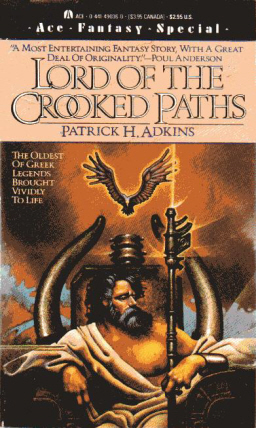Lord of the Crooked Paths: A Novel’s Odyssey from Print to Ebook
 The electronic publishing revolution not only promises convenience, low prices, and the availability of “every book ever published in every language” (in the words of Amazon.com founder Jeff Bezos), but also offers writers like myself the opportunity to undo past missteps in the print-publishing world.
The electronic publishing revolution not only promises convenience, low prices, and the availability of “every book ever published in every language” (in the words of Amazon.com founder Jeff Bezos), but also offers writers like myself the opportunity to undo past missteps in the print-publishing world.
Lord of the Crooked Paths, a fantasy of adventure, love, and intrigue set among the elder gods and goddesses of ancient Greece, certainly had its share of mishaps on its journey from manuscript to paperback to ebook.
The novel began with the intersection of two ideas: Greek mythology and the historical novel. I’ve loved Greek myths since I discovered Edith Hamilton’s Mythology in high school. A college course in Classics deepened that affection, and over the following years I found myself slowly seeking out the original sources in translation. Around the same time, I began reading Alexandre Dumas’ wonderful, action- and suspense-filled historical novels.
What would happen, I wondered, if one applied the techniques of the historical novel to the mythology of ancient Greece? Not retelling familiar hero tales, but fresh, new fictional stories the reader could not already know, set against a background of accurate (“historical”) myth, with fantasy elements treated as fact and the gods themselves as the principal characters?
The obvious place to begin was as near the beginning as possible, during the Age of the Titans, and my prior reading probably represented a generous portion of the required research. In my more grandiose moments, I envisioned a sequence of perhaps ten long novels that would present the entire range of divine myth, from the Titans to the death of Pan in Roman times.
My 600-page manuscript took a year and a half to write. During the nearly three years that followed, I queried some twenty-five publishers (mostly “mainstream”) who were in solid agreement that the story wasn’t for them.